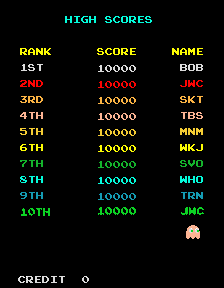Every game has a goal, and players want to know how they are progressing towards that goal. A scoring system is one way of tracking progress and determining who wins and loses the game. In this article, we will discuss some of the factors to consider when developing a scoring system for a game.
There are many different types of games, and each one will have its own unique scoring system. The most important thing is to make sure that the scoring system is appropriate for the type of game you are creating.
Creating A Scoring System Based On The Type Of Game You’re Creating

For example, a racing game would not use the same scoring system as a strategy game. If the game is a puzzle game, then the scoring system will be based on how many puzzles the player can solve. There are many other types of games out there, so the scoring system will vary depending on what type of game it is.
Type Of Audience For Scoring System
Another important factor to consider when developing a scoring system for a game is what type of audience the game is meant for. For example, if the game is meant for children, then the scoring system should be very simple and easy to understand. On the other hand, if the game is meant for adults, then the scoring system can be more complex. It is important to keep in mind who the game is for when designing the scoring system.
What The Player Is Trying To Accomplish In The Game
The next thing to consider is what the player is trying to accomplish in the game. For example, if the goal of the game is to get the highest score, then the scoring system should be designed so that it is easy to track the player’s progress and see who has the high score.
On the other hand, if the goal of the game is to beat the other players, then the scoring system should be designed so that it is easy to see who is in the lead.
Making The Scoring System Fair

Another important thing to consider when developing a scoring system is making sure that it is fair.
This means that the scoring system should be balanced so that no one player has an advantage over another. One way to do this is to playtest the game with different people and see how they fare under the scoring system.
If you find that one player always wins or one player always loses, then you will need to adjust the scoring system so that it is fairer.
Challenge Your Audience
You will also want to make sure that the scoring system is challenging for the audience.
If the scoring system is too easy, then players will get bored quickly. On the other hand, if the scoring system is too difficult, then players will get frustrated and give up. You will need to find a balance that is just right for the type of game you are creating.
Reward Your Players
You will want to make sure that you reward your players for doing well in the game.
This can be done by giving them points, power-ups, or other bonuses. This will help to keep players motivated and encourage them to keep playing the game.
Making The Scoring System Easy To Understand
One of the most important things to consider when developing a scoring system is making sure that it is easy to understand.
If the scoring system is too complicated, then players will get frustrated and give up.
It is important to make sure that the scoring system is easy to use so that players can quickly see how they are doing in the game.
Create The Scoring System So It’s Fun & Competitive
The last thing to consider when developing a scoring system is making sure that it is both fun and competitive.
This means that the scoring system should be challenging enough so that players are encouraged to keep playing, but not so difficult that they get frustrated.
It is important to find a balance between these two factors so that players will enjoy the game and want to keep playing.
With these factors in mind, you should be able to develop a scoring system for your game that is both fair and fun. Remember to playtest the game with different people to see how they fare under the scoring system.
This will help you to make sure that the scoring system is balanced and fair.
Engaging With Your Player-Base
It’s also important to keep in mind that the scoring system is just one part of the game.
You will also need to make sure that the game is fun and engaging for your players.
This means that you will need to create interesting levels, provide power-ups and bonuses, and give players a reason to keep playing.
The scoring system is just one part of the puzzle, but it’s an important one. With these tips in mind, you should be able to develop a scoring system that is both fair and fun for your players.
Other Things To Consider
When designing a scoring system, you should also keep the following factors in mind:
- The age of your audience: You will need to design a scoring system that is appropriate for the age of your audience. For example, younger children will need a simpler scoring system than older children or adults.
- The difficulty of the game: The scoring system should be challenging enough to keep players engaged, but not so difficult that they get frustrated.
- The type of game: The scoring system should be designed to fit the type of game you are creating. For example, a racing game will need a different scoring system than a puzzle game.
- The number of players: The scoring system should be designed for the number of players that will be playing the game. For example, a multiplayer game will need a different scoring system than a single-player game.
These are just a few things to keep in mind when designing a scoring system. By taking these factors into consideration, you will be able to create a scoring system that is both fair and fun for your players.
Conclusion
These are just a few of the things to consider when developing a scoring system for a game. The most important thing is to make sure that the system is appropriate for the game and its audience. With a little bit of thought and planning, you should be able to create a scoring system that is both fair and fun.

